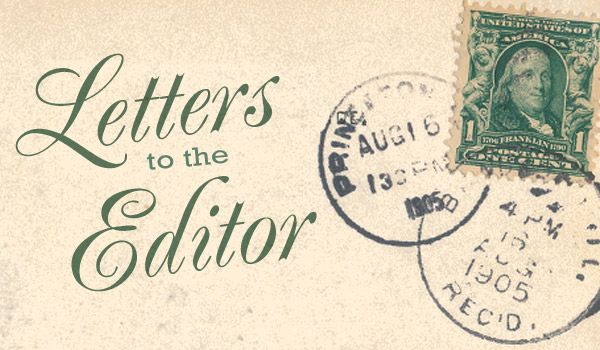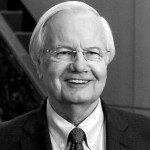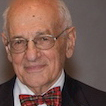
Dear Reader:
With this edition of BillMoyers.com we begin a new feature: Letters to the Editor (that’s me). For a long time I have carried on a running correspondence with close friends and valued acquaintances, and often with people whom I’ve yet to meet in person. Their letters have provided sustenance, humor, challenge and second thoughts on my part on everything from current affairs to personal reflections on life (and sometimes death). Now I want to expand the circle.
If you’re a serious reader of these pages and have something you would like to say, I want to hear from you. We’ll choose letters on an occasional basis as they seem relevant to an issue we have been following. Please keep your letter to a reasonable length — 100-200 words. Email us at yourturn [at] billmoyers [dot] com. As a model, consider today’s letter from historian Bernard A. Weisberger. He’s been “Bernie” to me for a quarter-century or more. We became colleagues on a number of television projects, including Report from Philadelphia, on the 1787 Constitutional Convention in Philadelphia, and A Walk Through the 20th Century, a series of specials on the tumultuous century that we shared (Warren Harding was president when Bernie was born; I was born two years after Franklin Delano Roosevelt’s first inaugural).
After teaching history at two universities Bernie became a contributing editor and columnist for the late and very lamented magazine American Heritage. Among his many books, my favorites are When Chicago Ruled Baseball, America Afire (about the momentous election of l800) and They Gathered at the River, an account of the rise of “that old-time religion” in America. You’ve seen many of his articles on this site. They and his letters to me deserve to be between hard covers.
So you can understand why I asked him to inaugurate our “Dear Bill” feature. Follow his example and I’ll be pleased to share your letter with other readers. 
Here we go:
The Sleep of Reason
Dear Bill:
There are so many horrors emerging from Trump’s actions in these first few weeks of his presidency that it’s hard to judge which, if any, is the most frightening. At the moment my own nomination is the confirmation of Scott Pruitt, the avowed climate change denier and enemy of environmental regulation, to head the Environmental Protection Agency — an absolutely classic case of a very hungry fox guarding a very vulnerable henhouse.
I choose this atrocity because climate change denial is a subset of a more critical issue, the increasing loss of universal acceptance that there are such things as knowable facts on which rational decisions can be made, and instead “truth” is whatever any given authority figure chooses to make it. But what was long considered beyond debate was science, the exploration of the laws governing the natural world, arrived at by rigorous observation, experimentation, creating explanations and then rigorously testing them in the laboratory or in the field. The process worked so well that when applied to medicine, mechanics and agriculture it produced a cluster of dazzling results that made the earth more productive and work less filled with drudgery and created unexplored opportunities for millions. Challenging science, then, was to defile the holy of holies, the ark of the covenant in the religion of progress.
And this is precisely what climate change denial does. It spits in the face of science and lands a body blow to the idea of modern democracy which grew in step with the march of invention.
When I began to study history in college more than 70 years ago there was an accepted narrative of upward movement. On the heels of the Dark Ages came the Renaissance of the 1500s, the rediscovery of the humanism of the classics. Then came the Age of Discovery in the following century, and finally the Age of Reason (or Enlightenment) of the 1700s. These were arbitrary divisions, oversimplified, sometimes cruel in their judgments of “backward” as against “civilized” peoples. The sunnier parts of the story have been challenged, and justly so. But without those changes in the conception of what humans were capable of achieving, there would have been no transition to thinking of them as capable of governing themselves.
The conception of people making “reasoned” choices about what is good or bad for them has been heavily battered in the 20th and 21st centuries by new knowledge about how our emotions and our brains work. But faith in science as the yardstick of truth, or at least as far as it is humanly possible to reach the truth, until now stood as a kind of last bastion of solidity. Take away that ground under our feet and we are easier prey to self-interested fakes, zealots, and political and economic hucksters — and are the poorer in spirit and in freedom for it. We are less trustful of others, less likely to keep an eye out for what are fundamental attacks on our community values.
When I hear some CEO of an energy company bloviate that it’s impossible to transition at a quicker step towards more renewables without destroying the American economy, or some yahoo swearing that if he’s forced to buy energy-saving bulbs then freedom has perished from the land, I don’t know whether to laugh or punch a hole in the TV screen. The war that Trump and Pruitt will be waging on the EPA, and worse, on the faith in science itself, looks to me like a part of the general know-nothing assault on our democracy currently swinging into high gear. The thought of its success alternately scares me and motivates me to resist. It ought to do so for all of us. Because the sleep of reason, Bill, becomes a nightmare.
— Bernie
Dear Bernie:
Hardly had I read your letter than up popped a report from The New Republic disclosing that the Science Office at the Environmental Science Office has removed “Science” from its mission statement. I’m not making this up. Donald Trump and Steve Bannon had been president for only a few days before the big energy companies started receiving payback for supporting their campaign by removing “science” in the paragraph describing what the agency does — or did until the Age of Trump dawned. According to The New Republic, “The EPA’s Office of Science and Technology has historically been in charge of developing clean water standards for states. Before Jan. 30 of this year, the website said those standards were ‘science-based,’ meaning they were based on what peer-reviewed science recommended as safe levels of pollutants for drinking, swimming, or fishing. Since Jan. 30, though, the reference to ‘science-based’ standards has disappeared.”
How prescient you were, Bernie. 





